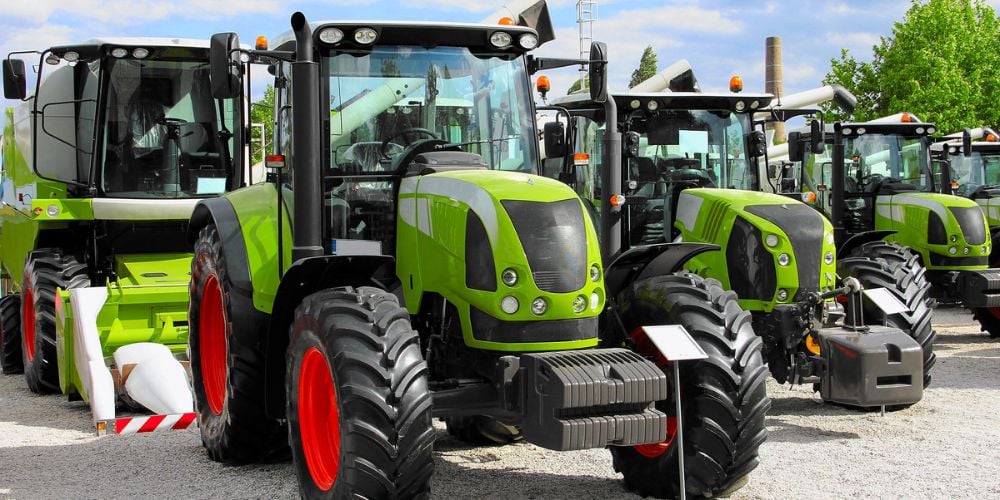In this article, we explore the question: Is John Deere a monopoly in the agricultural machinery market?
By examining the company’s market share, competitive landscape, and industry practices, we aim to understand how John Deere’s position affects the broader agricultural sector.
Overview of John Deere
John Deere, a name synonymous with agricultural equipment, has been a leading figure in the industry since its inception in 1837. Known primarily for its tractors and other farming machinery, John Deere has grown to become a key player globally.
The company’s commitment to quality and innovation has solidified its reputation among farmers worldwide.

Understanding Monopolies
To determine if John Deere is a monopoly, we first need to grasp what a monopoly is. A monopoly exists when a single company dominates the market, offering no reasonable substitute for its products or services, often creating high barriers to entry for other companies.
This positioning allows the dominant company to have significant control over pricing and terms of sale.
Is John Deere a Monopoly?
John Deere holds a substantial share of the market in agricultural machinery.
Reports indicate that John Deere consistently captures over 50% of the market in many categories of agricultural equipment, which is significantly higher than its closest competitors, indicating a dominant market position.
Comparison with Competitors
Despite its large market share, John Deere faces competition from companies like Case IH, Kubota, and AGCO, each holding their slice of the market pie. This competition is crucial as it introduces diversity and choice in the market, factors that are generally inconsistent with a typical monopoly.
Barriers to Entry
The agricultural machinery industry has significant barriers to entry, including high capital requirements and strong brand loyalty among customers, which favor established companies like John Deere.
However, these barriers do not exclusively benefit John Deere nor prevent other competitors from entering and expanding in the market.
Factors Contributing to John Deere’s Success
Innovation and R&D
John Deere’s commitment to research and development stands out in the industry. The company invests heavily in new technologies, such as automated and GPS-enabled equipment, to stay ahead of the curve, which significantly contributes to its market strength.
Customer Loyalty and Brand Strength
The strong brand recognition and loyalty that John Deere enjoys also play a critical role in its market status. Many farmers hold generational loyalty to the brand, trusting in the quality and reliability of its machinery.
Strategic Acquisitions
Throughout its history, John Deere has strategically acquired several companies to broaden its product lineup and market reach, further cementing its role in the agricultural sector.
Arguments Against John Deere Being a Monopoly
Presence of Competitors
There are viable competitors in the market that offer similar products and services to John Deere.
The agricultural machinery market features a competitive landscape where multiple companies vie for farmers’ business, indicating a non-monopolistic environment.
Market Challenges
John Deere faces several market challenges, including regulatory issues, trade tensions, and economic fluctuations that affect all players in the industry equally, further contradicting the monopoly argument.
Access and Fairness in Competition
John Deere operates in a regulatory environment that promotes fair competition. There have been no notable antitrust legal challenges targeting John Deere, suggesting that its business practices align with competitive fairness.
Legal and Ethical Considerations
Despite its dominance, John Deere has managed to steer clear of significant legal and ethical issues that would typically characterize monopolistic practices.
This adherence to ethical business practice supports a competitive market structure.
Impact on Consumers and the Market
Pricing and Availability
While John Deere’s equipment often comes with a premium price tag, competitive forces within the market help regulate pricing and keep it within reason.
Moreover, the availability of alternate brands gives farmers options, preventing the monopolistic control over product availability.
Innovation
John Deere’s market position may be seen as encouraging innovation rather than stifling it.
Its significant investment in research and development not only advances its own product offerings but also pushes competitors to innovate, benefiting the industry and consumers alike.

Frequently Asked Questions
Does John Deere hold a monopoly in the agricultural equipment industry?
No, John Deere does not hold a monopoly. Despite its large market share, there are viable competitors, indicating a competitive market.
Who are John Deere’s competitors?
Key competitors include Case IH, Kubota, and AGCO, each offering a range of agricultural machinery.
Are there barriers to entering the agricultural machinery market?
Yes, significant barriers include high capital requirements and strong brand loyalty, which favor established companies.
Does John Deere’s market dominance hinder innovation?
No, John Deere’s commitment to research and development encourages innovation within the company and the industry.
How does John Deere’s market position affect consumers?
John Deere’s market position promotes innovation but also comes with premium pricing, balanced by the competitive options available to consumers.
Conclusion
John Deere holds a powerful position within the agricultural machinery industry, but evidence suggests it does not constitute a monopoly.
The presence of competitors, legal and ethical business practices, and continuous industry innovation contribute to a competitive and healthy market environment, which ultimately benefits consumers.
In answering the question “Is John Deere a monopoly?” it becomes clear that while powerful, the company operates within a dynamic market filled with capable competitors that prevent it from monopolizing the agricultural machinery industry.


 Tags:
Tags:










